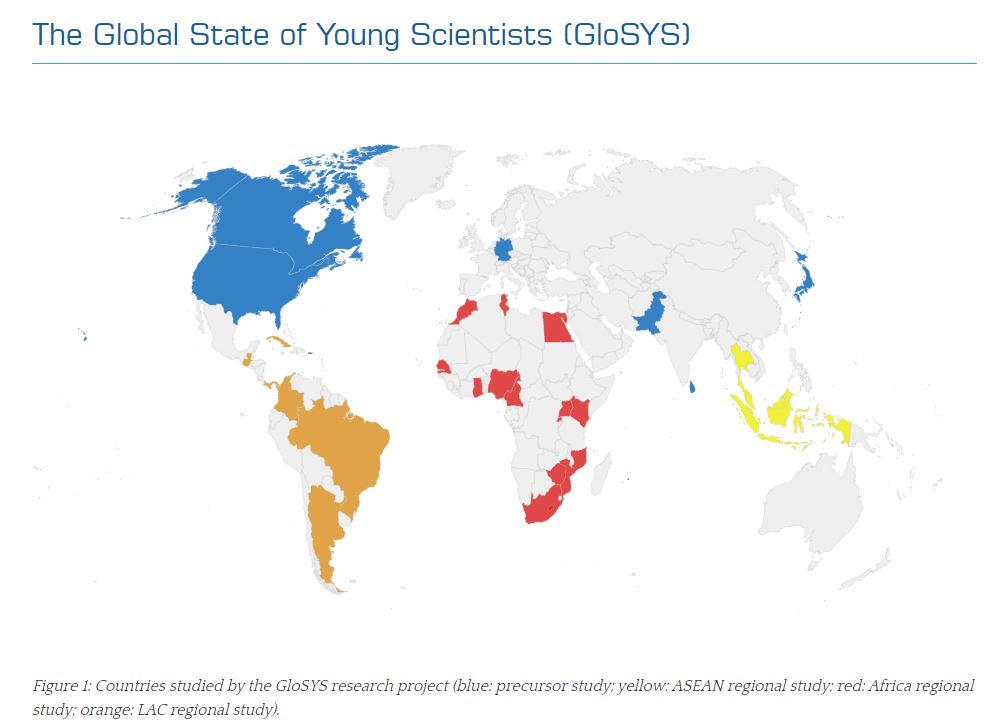In October 2020, members of the Global State of Young Scientists Latin America and Caribbean countries (GloSYS LAC) Working Group met to discuss project funding, country selection, the impact of COVID-19 in the everyday life of early-career researchers (ECRs) and the potential ways of including this issue in the current focus of the GloSYS LAC study.
Several applications have been sent to potential funders and others are in preparation. The WG members agreed that the COVID-19 pandemic affects the careers of young scholars in various ways, but its implications for the collection and analysis of empirical data in Latin America and the Caribbean are still uncertain.
The selection of focal countries to study in the GloSYS LAC research project is still in process. The rationale for selecting countries is based on the size and characteristics of their research and higher education systems, as well as practical elements such as field access, current partner institutions, networks accessible through the working group members and local support. According to these criteria, the country selection currently entails Argentina, Brazil, Colombia, Cuba, Guatemala and Panama.
The WG members involved in this discussion generally agreed to include Brazil, Colombia and Panama. While the Argentinian Young Academy and TWAS are interested in the project and do collaborate with the GYA, there are few networks in that country. By contrast, several GYA members are based or originally come from Chile, which may place this country as a relevant case to study instead of Argentina.
Cuba stands out among the Caribbean countries because of its investment in scientific production and gradual development of research capacity. But there might be potential difficulties for collecting data, accessing research participants, ensuring unbiased responses and safeguarding the anonymity of research participants. Guatemala is also a relevant case because it has been barely addressed in the literature and there is much to discover regarding the state of young scientists. Still, research participants might also be difficult to access, thus requiring significant effort to develop networks in that country.
